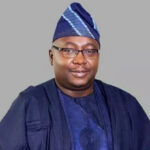
Ohanaeze also said his remarks have “reopened deep wounds” among the Igbo people.
In a strongly-worded statement released on Sunday, Ohanaeze Secretary-General Okechukwu Isiguzoro said Gowon’s comments during a February 21 visit to President Bola Tinubu were a “deliberate targeting of the collective Igbo psyche” and showed a “lack of empathy” for the suffering caused by the 1967-1970 war.
“We challenge Gowon to reflect on his actions and recognise the need for reconciliation and repentance,” Isiguzoro said. “His steadfast refusal to acknowledge the pain and suffering caused by the war displays a failure to grasp the gravity of his role in that dark period of our history.”
The group asserted that Gowon’s survival for over five decades, despite an estimated 3 million Igbo lives lost in the war, gave him a “unique opportunity for redemption and reconciliation.”
“As a professed Christian, we implore Gowon to heed the call of conscience and take necessary steps to seek forgiveness from the Igbo people by acknowledging his mistakes, revealing the truth behind the Aburi Accord, and issuing a sincere apology,” he added.
Isiguzoro said Gowon’s “repeated insensitive comments” undermined Igbo reconciliation efforts despite their “demonstrated forgiveness and commitment to national development.”
He called on the former head of state to “seize this pivotal moment to discard the relics of the past, embrace humility, and offer a long-overdue apology”, saying it would pave the way for “genuine reconciliation” and “lasting peace and harmony.”
The Nigerian Civil War also known as the Biafran War, started on July 6, 1967, and ended on January 15, 1970. It was a civil war fought between Nigeria and the Republic of Biafra, a secessionist state that had declared its independence from Nigeria in 1967.
Nigeria was led by Gowon, while Biafra was led by Lieutenant Colonel Chukwuemeka “Emeka” Odumegwu Ojukwu.





